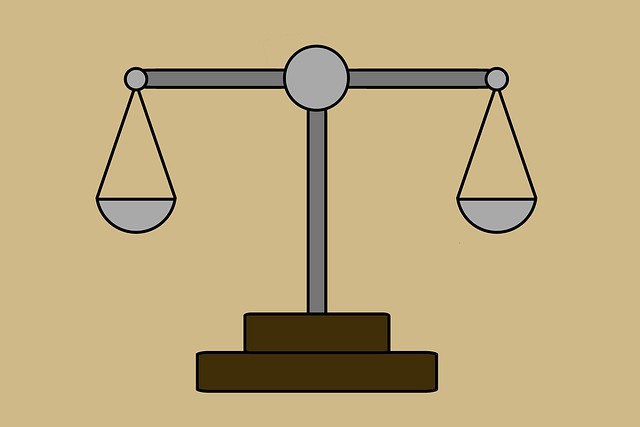Understanding consumer rights in healthcare empowers patients to make informed decisions and hold providers accountable. Common defenses in consumer protection litigation include issues of informed consent, breach of confidentiality, and unequal treatment. Healthcare providers must document interactions thoroughly, employ secure data practices, and strategically navigate legal complexities to ensure compliance and deliver quality services. Robust complaint handling, transparent communication, and proactive feedback integration prevent legal troubles and showcase institutional integrity.
In the dynamic landscape of healthcare, navigating legal issues is paramount to ensure patient safety and provider success. This comprehensive guide delves into critical aspects of healthcare law, focusing on consumer rights, common misunderstandings, regulatory compliance strategies, and effective complaint management. By exploring practical defenses in consumer protection litigation, healthcare providers can fortify their practices against potential pitfalls, fostering trust and delivering quality care.
- Understanding Consumer Rights in Healthcare
- Common Misrepresentations and Their Defenses
- Regulatory Compliance: A Key Shield for Providers
- Handling Complaints and Avoiding Legal Pitfalls
Understanding Consumer Rights in Healthcare

Understanding consumer rights in healthcare is paramount to ensuring fairness and transparency in medical services. Patients across the country have specific protections under various federal and state laws, designed to safeguard their interests. These rights encompass access to information about their treatment, consent for procedures, privacy, and non-discrimination. Knowing these rights empowers patients to make informed decisions and hold healthcare providers accountable when necessary.
Common defenses in consumer protection litigation often revolve around issues of informed consent, breach of confidentiality, and unequal treatment. Healthcare providers must document patient interactions meticulously to bolster defenses related to lack of informed consent or inadequate disclosure. Protecting patient privacy through secure data management practices can mitigate risks of breach of confidence. Achieving extraordinary results for corporate and individual clients involves navigating these legal complexities with strategic precision, ensuring compliance with consumer protection laws while delivering quality healthcare services.
Common Misrepresentations and Their Defenses

In healthcare legal issues, consumer protection litigation often arises from common misrepresentations made by medical providers or pharmaceutical companies. These include misleading marketing claims, false assurances about treatment outcomes, and incomplete disclosure of risks associated with procedures or medications. To mitigate such disputes, common defenses in consumer protection litigation focus on demonstrating honest mistakes, good-faith efforts to provide accurate information, or the unanticipated evolution of medical knowledge. Legal teams often argue that representations were based on established industry standards at the time or that patients were sufficiently informed to make their own decisions.
Defenses also frequently highlight the complex nature of healthcare, where definitive outcomes are not always predictable. They may claim that any misinformation was not intentional but rather a result of white collar and economic crimes committed by third-party actors or a lack of understanding among consumers about sophisticated medical concepts. Ultimately, successful winning challenging defense verdicts in these cases requires robust documentation of informational disclosures, adherence to ethical guidelines, and proof that patients were empowered with the knowledge necessary to make informed choices, even if those choices ultimately led to dissatisfaction.
Regulatory Compliance: A Key Shield for Providers

Healthcare providers face a complex web of regulations designed to protect patients and ensure ethical practices. Navigating this landscape is crucial to avoid legal pitfalls, especially in high-stakes cases involving consumer protection litigation. By adhering to strict guidelines on data privacy, informed consent, and treatment standards, providers can fortify their defenses against potential lawsuits. Regular audits and training sessions on regulatory compliance act as robust safeguards, empowering healthcare professionals to manage risks effectively.
Mastering these regulations offers more than just adherence; it serves as a strategic defense mechanism in the event of disputes. In the face of jury trials involving white-collar and economic crimes, a strong regulatory compliance record can be a powerful tool. Demonstrating due diligence and ethical conduct can significantly influence public perception and legal outcomes, making regulatory compliance a key shield for providers in an increasingly scrutinized healthcare landscape.
Handling Complaints and Avoiding Legal Pitfalls

In the realm of healthcare, handling complaints effectively is paramount to maintaining patient satisfaction and avoiding legal pitfalls. When faced with consumer protection litigation, healthcare providers must rely on robust procedures for addressing patient grievances. A meticulous record-keeping system facilitates tracking and resolving issues promptly. Transparency in communication builds trust, demonstrating a commitment to ethical practice.
Common defenses in consumer protection litigation play a crucial role in protecting healthcare institutions from unfounded allegations. An unprecedented track record of successful complaint resolutions, achieved through complete dismissal of all charges, showcases the organization’s integrity within the philanthropic and political communities. By fostering a culture of continuous improvement based on feedback, healthcare providers can proactively identify and rectify potential legal issues before they escalate.
In navigating the complex landscape of healthcare law, understanding consumer rights, being vigilant against common misrepresentations, ensuring regulatory compliance, and effectively handling complaints are pivotal strategies for providers. By adopting these measures, healthcare professionals can fortify themselves against potential legal pitfalls, fostering trust and delivering quality care. Moreover, staying informed about Common Defenses in Consumer Protection Litigation is essential to mitigate risks and protect both patients and practitioners.






